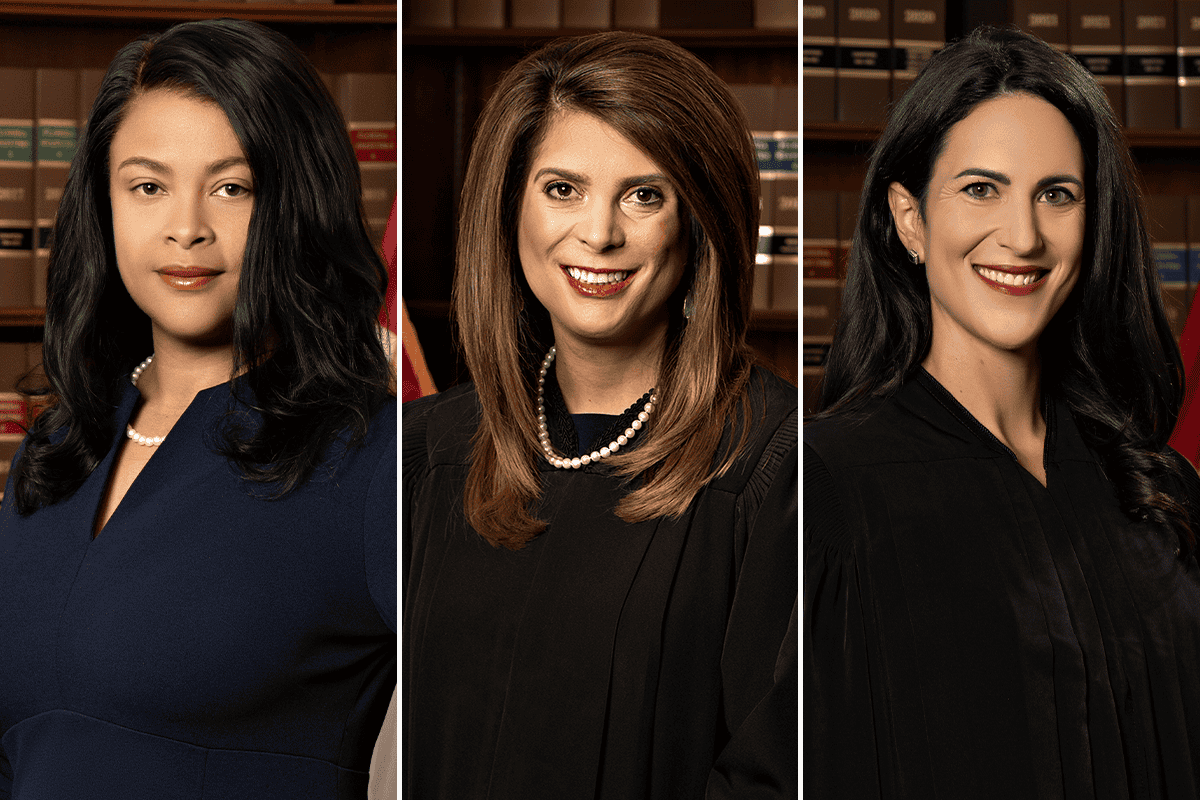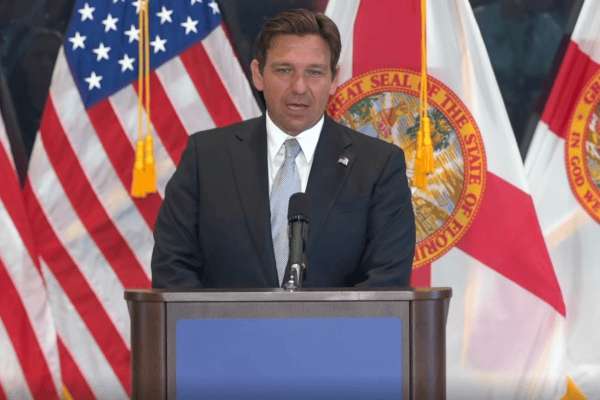Florida’s three female Supreme Court justices explain dissent of allowing abortion ballot access

TALLAHASSEE, Fla. – Florida’s three female Supreme Court justices explained in their dissents why abortion shouldn’t have been given ballot access for November.
The justices, Jamie Grosshans, Renatha Francis and Meredith Sasso opposed the majority decision by their male counterparts to allow the amendment on Florida’s 2024 ballot.
The amendment was sponsored by Floridians Protecting Freedom and seeks to permit abortion in the state up until the point of viability – ultimately nullifying the state’s 15 week, and soon-to-be six week, abortion ban.
Grosshans, in her dissent, which Sasso concurred with, explained how the court has time and time again outlined that ballot amendments must be “accurate and informative” so that the electorate is fully aware of what they are voting on.
“The majority implies that I am concerned only with ‘ambiguity in the text of the amendment’ itself. That is not so,” she said. “On the contrary, it is the summary that has failed to adequately explain the amendment.”
“In my view, the summary does not give the voter any clarity on the decision they must actually make or reveal the amendment’s chief purpose. Instead, it misleads by omission and fails to convey the breadth of what the amendment actually accomplishes—to enshrine broad, undefined terms in our constitution that will lead to decades of litigation,” she added.
Grosshans also criticized the majority opinion for refusing to address older cases related to invalid ballot amendments that contained misleading language in their opinion.
She argued how voters may assume, because of the language, that the amendment would return Florida to a pre-Dobbs position on the issue of abortion. She argued that is not the case, and that courts would be tasked with attempting to interpret countless policies and laws over time.
“Instead, this amendment returns abortion issues back to the courts to interpret scope, boundary, definitions, and policy, effectively removing it from the people and their elected representatives,” she said.
Francis argued on similar grounds as Grosshans – that the amendment language was indeed misleading and difficult for voters to truly understand the ramifications.
“Because the summary only parrots the language of the proposed amendment, it explains nothing, and does not disclose its chief purpose,” Francis said.
“It is my view that while the constitution enshrines the reserved right of the people to amend their constitution, this Court also has a role in ensuring the people can exercise that right free of anything that would mislead them or present them with ambiguity,” she added.
Francis went so far as to predict what she believes is the actual intent behind the initiative.
She specifically argued that the goal was to “abrogate meaningful abortion laws,” “eliminate” further legislative participation in the issue, “vastly expand” one’s right to an abortion at any time in their pregnancy and, ultimately, redefine abortion as a “health issue.”
She went into detail on each argument, particularly honing in on how the term “health” in the amendment is not limited to actual life threatening situations for women, but could mean practically anything and be used to justify abortions in almost any instance.
Supreme Court of Florida justices are selected by the governor and face a merit retention vote in the immediate election following the appointment. If voters approve of the justice’s work, they will serve out a six year term, after which they will face an additional merit retention vote if they choose to remain in office.
With Sasso and Francis being appointed most recently, they will each face an approval vote by Floridians in November. All other current justices will face their next vote in 2026 or 2028.
The three female justices, as well as Justice John Couriel and Chief Justice Carlos Muniz, were appointed by Gov. Ron DeSantis. Justices Charles Canady and Jorge Labarga were appointed by Gov. Charlie Crist when he was a registered Republican.



